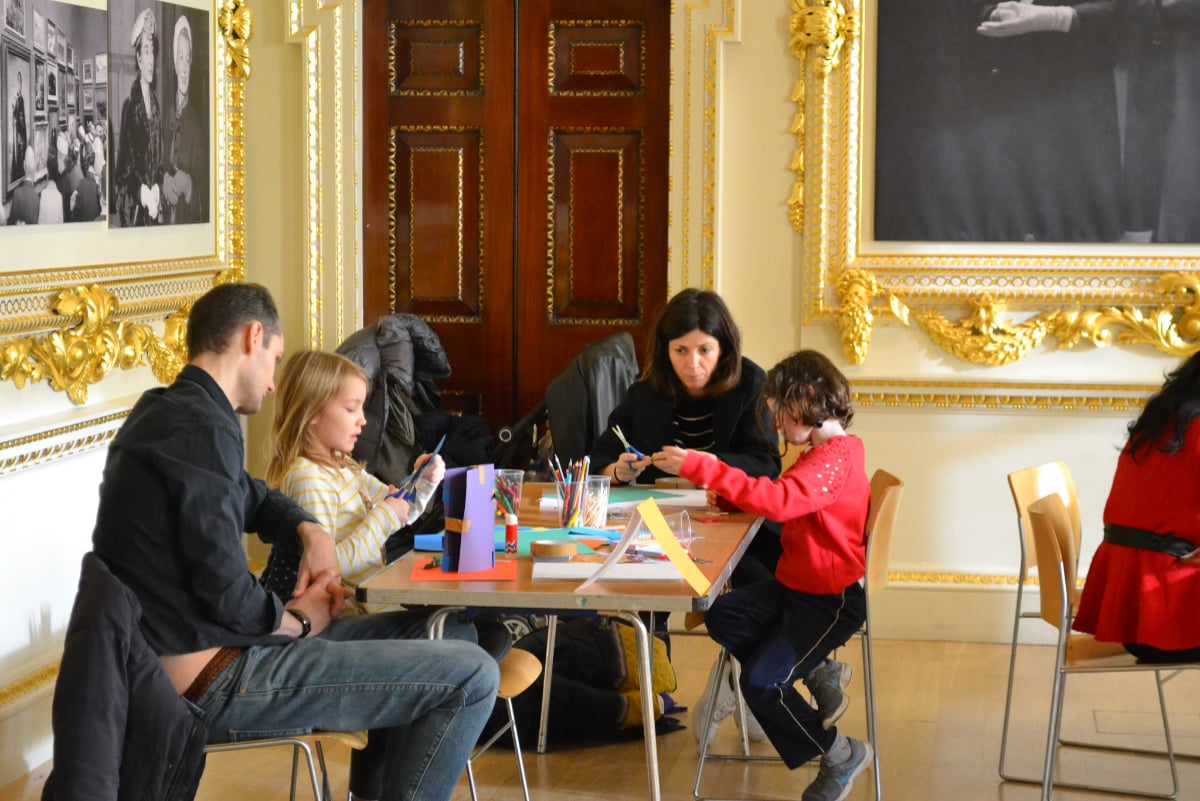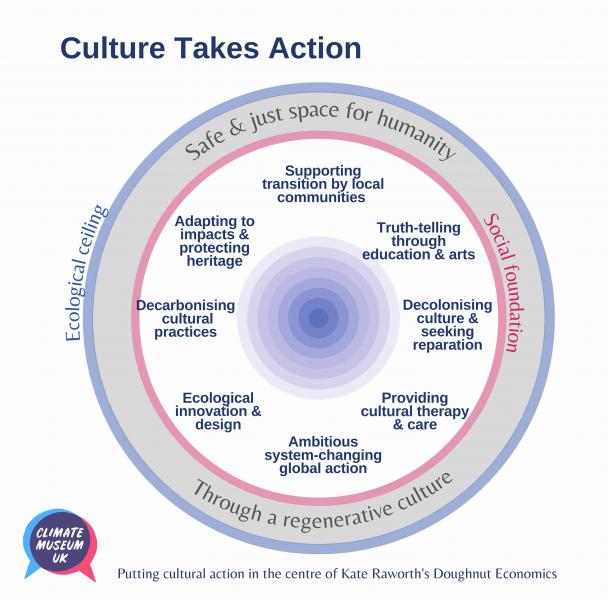
CMUK at RA Ecovis
An experimental museum to tackle the climate crisis
Organisations talk a big game about preventing climate change but what are they doing? Bridget McKenzie shares her experience of testing the way culture takes action.
Professor Julia Steinberger tweeted that “most people are still mostly ignorant of the severity, irreversibility and near-term nature of climate impacts”. Most are also unaware of the impacts of biodiversity loss and pollution – for example, causing zoonotic pandemics like Covid-19. After facing the truth of the climate and ecological emergency, what can you do to make a difference?
Training for sustainability
Culture is a force of hope in tackling this crisis. If enough of us step up to the challenge, the sector can influence culture more widely to be more just and sustainable. I stepped up by founding Climate Museum UK in 2018 and co-founding Culture Declares Emergency in 2019. I wanted to push further and create an experimental museum that tests the ways that culture takes action – a catalyst for rapid professional learning.
Climate Museum UK aims to stir and collect responses to the Earth crisis. It has a distributed structure, with associates across the UK using art, objects and sites to help people talk about the crisis and open their imaginations to solutions. We’re engaging directly with the pubic and offering training and partnerships to practitioners, museums, arts organisations, libraries and businesses. It complements other sustainability training by emphasising ways to engage communities on the social and ecological aspects of the crisis. We aim to expand horizons of action to include exposing the power of fossil fuel lobbies, finding ways to cope with the ‘baked in’ effects of climate change, and leveraging culture’s power to create more regenerative economies.
Culture Takes Action is a framework underpinning our training. A menu of actions helps organisations form ambitious plans and lets us amplify stories of radical action. The more visible this practice, the more the public and politicians will see the relevance of culture in times of crisis and the more cultural practitioners will help people imagine the better world we know is possible.
A new model
Kate Raworth’s Doughnut is a model for new economics that meet the fundamental needs of our society and planet. I've envisaged these eight action areas sitting at the centre of the Doughnut. What do these areas mean for cultural organisations?

- Truth-telling through arts and education: Culture highlights our own truths and helps us see from other perspectives. Storytelling can increase understanding of links between consumption, climate, conflict and migration.
- Ambitious system-changing global action: Cultural organisations can collectively advocate for UN policies or embedding the Global Goals, or campaign for a law to end ecocide. Artists could work to rewild land, integrating arts into their projects.
- Support transition by local communities: Culture can play a role in the transition to greener economies by helping people to gain a sense of place. Museums could use collections to stimulate ideas for local innovations around food, water, or energy.
- Providing cultural therapy: Culture can support people in despair, when leaders have failed us, and we must respond with compassionate action. Artists can work with services that support people displaced by climate change.
- Decolonising culture: The cultural sector needs to expose and dismantle systems of exploitation. Organisations should acknowledge those affected by the histories and current effects of colonialism.
- Decarbonising cultural practice: Beyond modelling ways to reduce ecological footprints, the sector must go further to benefit people, place and planet. This might mean exposing the influence of ecocidal industries and partnering with greener sponsors.
- Ecological innovation: Be a platform for ecological and social innovation such as urban farming or circular forms of production.
- Adapting to impacts and protecting heritage: There will be growing need to protect heritage and cultural infrastructure from climate impacts and ecosystem damage.
Advocacy in the arts
I’ve been developing these ideas in my work as a consultant, including in networks such as Happy Museum Project. Climate Museum UK now has about 20 associates who draw on each other’s experiences of creative practice in ecological and social wellbeing. As an experimental museum, we’re learning as we go, prototyping different ways to collect objects and stories and interact with people. We’re tackling these eight areas of action in partnership; for example, we support ambitious global action through social media activity as a member of the United for Biodiversity coalition. For more local action, we work with groups in sites such as rivers, parks or schools. And we’re combining decarbonising our practice with decolonising culture, ensuring our activities are kind to the planet as they explore histories of extractive colonialism.
We’re advocating for cultural policy and cross-sector decision-making that acknowledges the climate emergency at the same time as modelling approaches to creative engagement. Advocacy is vital but it is not enough without practice that educates, stops harm, and restores the wellbeing of our communities. We must use culture’s power to amplify the voices of those who are most impacted and most able to offer solutions. The Government must listen to people and experts – not the lobbying of ecocidal industries – and recognise the enormity and iniquity of the Earth crisis in its policy.
Bridget McKenzie is Founding Director of Climate Museum UK and Flow Associates
![]() aboutbridgetmckenzie.wordpress.com/
aboutbridgetmckenzie.wordpress.com/
![]() @bridgetmck
@bridgetmck
![]() [email protected]
[email protected]
Join the Discussion
You must be logged in to post a comment.